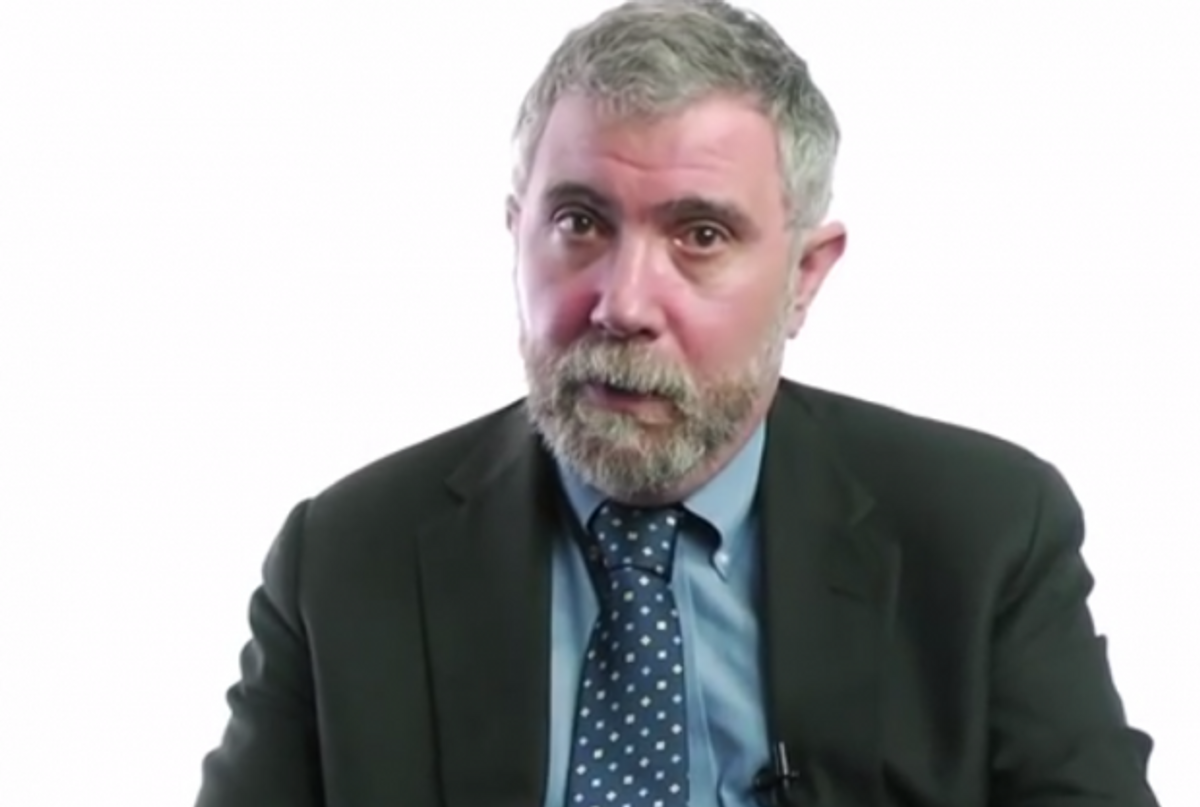One day before Israelis vote in their country's much-anticipated national elections, polls show Prime Minister Benjamin Netanyahu at grave risk of losing his bid for a fourth term in power, as the center-left Zionist Union of Isaac Herzog and Tzipi Livni surges. The prime minister himself is quite cognizant that he could be out of a job in a few days' time; rallying supporters on Sunday, he warned that defeat was very much a possibility. How did Netanyahu arrive at this juncture? In his New York Times column today, economist Paul Krugman offers a simple answer: It's the inequality, stupid.
Despite impressive economic growth in recent decades, Israel's prosperity has not been broadly shared, Krugman notes, rattling off a series of sobering statistics. From 1992 to 2010, the proportion of Israelis earning less than half the median income doubled from one-tenth to one-fifth; during that same period, the share of children living in poverty skyrocketed from 7.8 percent to 27.4 percent.
Meanwhile, the well-heeled aren't having nearly as rough a go of it. Indeed, more wealth is being concentrated at the top one percent, and Krugman points to a Bank of Israel study showing that about 20 families own half the value of Israel's stock market.
Echoing his assessment of inequality in the U.S., Krugman posits that this state of affairs is not the product of inexorable forces. Instead, he writes, Israel's unequal society is the result of conscious political choices -- not least the choices not to build a robust social safety net, and to allow the oligarchic class to accrue inordinate power over the country's affairs. And so, Krugman concludes, Netanyahu may suffer the consequences of mounting discontent:
In short, the political economy of the promised land is now characterized by harshness at the bottom and at least soft corruption at the top. And many Israelis see Mr. Netanyahu as part of the problem. He’s an advocate of free-market policies; he has a Chris Christie-like penchant for living large at taxpayers’ expense, while clumsily pretending otherwise.
So Mr. Netanyahu tried to change the subject from internal inequality to external threats, a tactic those who remember the Bush years should find completely familiar. We’ll find out on Tuesday whether he succeeded.

Shares